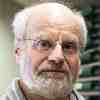Communications of the ACM
Refine your search:
From BLOG@CACM
ChatGPT for Provost!
Three to five years from now, we won’t be talking about what ChatGPT can or can’t do, but we could be talking about how ChatGPT brought us all together, and the...
From BLOG@CACM
What Google Should Really Be Worried About
How sewers of lies could spell the end of Web search.
From BLOG@CACM
What is an Author?
In a single-author text (such as this one), we can assume a lot about the process. In the multi-author case, all these assumptions start to break down.
From BLOG@CACM
The Need For Combined Data And Analytic Governance
Numbers don't mean anything if people don't understand, or trust, the computation behind them.
From BLOG@CACM
Evaluating Research Results for Practical Applications
The role of the application of research results in assessing the achievements of scientists.
From BLOG@CACM
Large Language Models like ChatGPT say The Darnedest Things
ChatGPT makes the same kinds of mistakes its predecessors did. What can and should we do about it?
From BLOG@CACM
The ChatAlgebra Educational Revolution
We need a ChatAlgebra revolution to reduce the gatekeeping role of the traditional Algebra course, to ameliorate the student suffering associated with the traditional...
From BLOG@CACM
What to Expect When You're Expecting ... GPT-4
What comes after ChatGPT? Seven predictions for 2023.
From BLOG@CACM
Is Computing Innovation Getting Harder?
Many of us, inside the ivory tower and outside, have felt at times that research is not quite delivering at the rate we hope it would.
From BLOG@CACM
Inorganic Growth In Tech: Getting Shredded with Acquisitions
Acquisitions happen quite often in the tech industry and are far more complicated to pull off successfully than popping a pill.
From BLOG@CACM
5 Best Practices for Cloud-Based Backup and Recovery in 2023
These practices help technical professionals ensure their organizations' data is protected and can be recovered quickly.
From BLOG@CACM
Did Grace Hopper Create the First Compiler?
Heinz Rutishauser (ETH Zurich, Switzerland) is regarded as the developer of automatic programming.
From BLOG@CACM
How do Authors' Perceptions about their Papers Compare with Co-Authors' Perceptions and Peer-Review Decisions?
Does peer review change authors' perception of their own papers?
From BLOG@CACM
Early Computers in Continental Europe
About the Bark (binär automatisk relä-kalkylator, binary automatic relay computer) and Besk (binär elektronisk sekvens kalkylator, binary electronic sequential...
From BLOG@CACM


















